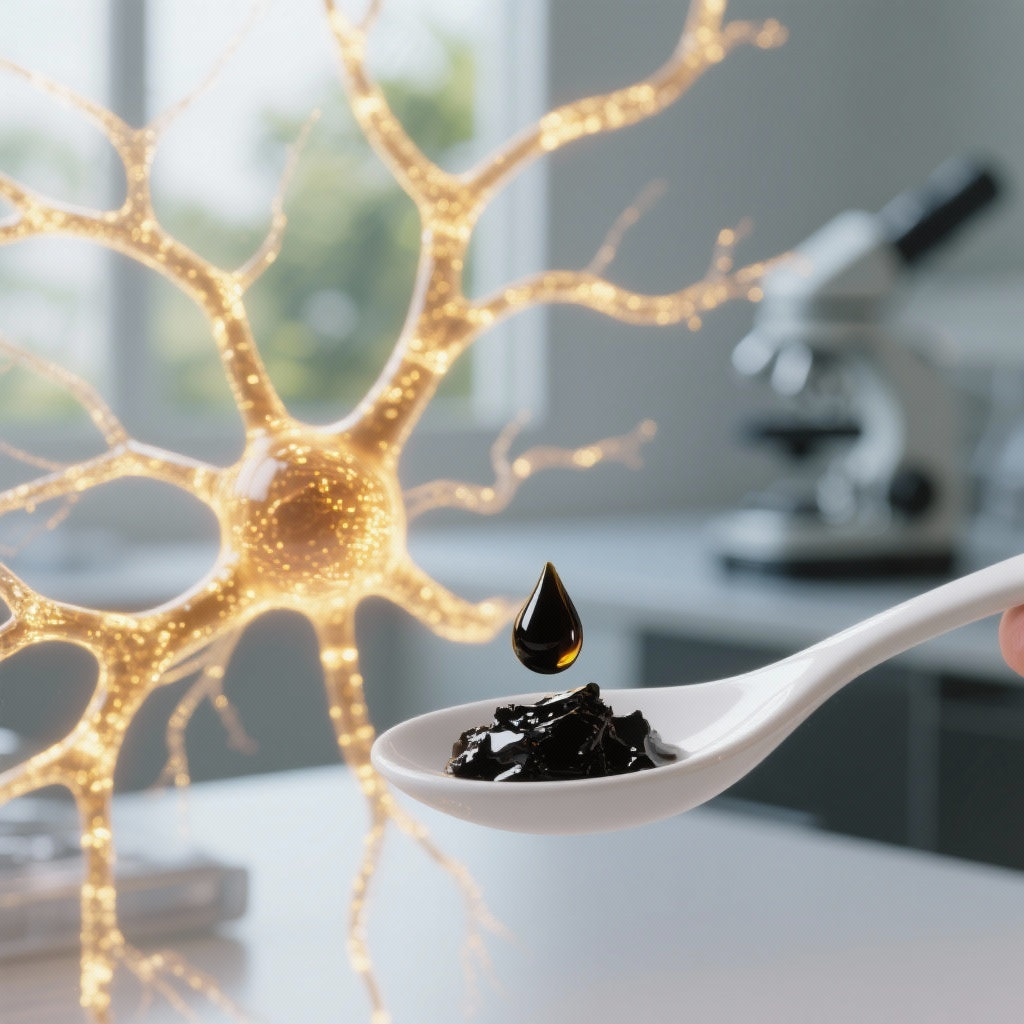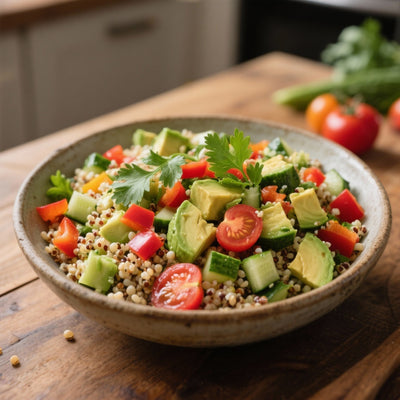What is adaptive immunity and how can it be supported naturally?
Have you ever wondered why, after having chickenpox once, you are generally protected for life? Or how a vaccine can protect you against a disease you have never contracted? The answer lies in one of the most sophisticated and fascinating mechanisms of the human body: adaptive immunity .
Far from being a simple passive barrier, our immune system is an intelligent army, capable of learning, remembering, and adapting. Understanding how it works is the first step to strengthening it. In this article, we'll demystify adaptive immunity, explore its differences from innate immunity, and, most importantly, discover powerful natural strategies to support it every day. Get ready to become the architect of your own defenses.
Understanding adaptive immunity: Your body's living memory
Imagine your immune system as a highly sophisticated security agency. Adaptive immunity, also called acquired immunity, is its intelligence service. Unlike its counterpart, innate immunity, which reacts generally and immediately to any threat, adaptive immunity is specific , methodical , and possesses long-term memory .
When your body encounters a new invader (a virus, a bacterium), adaptive immunity analyzes it, develops a tailored weapon to neutralize it, and then stores the "battle plan" for any future encounter. It is this immunological memory that provides us with lasting protection. It takes a few days to activate the first time, but upon a second exposure to the same pathogen, the response is so rapid and effective that we often don't even get sick.
Innate vs. Adaptive Immunity: Two Complementary Lines of Defense
To fully grasp the power of adaptive immunity, it is helpful to compare it to innate immunity, our first line of defense.
- Innate Immunity: This is the castle's guardian. It is non-specific and acts immediately. Think of the skin, mucous membranes, or cells like macrophages that "eat" anything that seems foreign. It is essential for containing an infection from the outset, but it has no memory.
- Adaptive Immunity: This is the elite unit. It takes longer to develop (5 to 10 days), but it is remarkably precise. It specifically targets the invader and creates memory cells to recognize it decades later.
These two systems work in perfect synergy. Innate immunity raises the alarm and slows down the enemy, giving adaptive immunity time to prepare its targeted counter-attack.
Key Players in Adaptive Immunity
This specialized army is composed of several types of cells, primarily lymphocytes, which originate in the bone marrow.
B Lymphocytes: The Antibody Factories
B lymphocytes are responsible for producing antibodies. These Y-shaped proteins are like heat-seeking missiles. Each antibody is designed to bind to a specific antigen (a molecule on the surface of a pathogen). Once attached, they can either neutralize the intruder directly or mark it so that other immune cells can destroy it.
T Lymphocytes: The Conductors and the Killers
T lymphocytes are more versatile and are divided into several categories:
- Helper T cells: These are the coordinators. They activate B cells to produce antibodies and mobilize other immune cells.
- Cytotoxic (or killer) T lymphocytes: They are the striking force. Their mission is to patrol and destroy cells in our own body that have been infected by a virus or have become cancerous, thus preventing the spread.
- Regulatory T lymphocytes: They play the role of moderators, ensuring that the immune response does not become excessive and attack our own tissues (which can happen in autoimmune diseases).
How to Naturally Support Your Adaptive Immunity?
Now that we understand the mechanisms, the crucial question is: how can we help this sophisticated system function optimally? It's not about aggressively "boosting" immunity, but about providing it with the environment and resources it needs to regulate itself and respond effectively.
"The immune system, and in particular adaptive memory, is not built in a day. It reflects our lifestyle habits, our diet, and our stress management. Every choice counts."
1. Nutrition: The Building Blocks of Your Defenses
A nutrient-rich diet is essential. Your immune cells need vitamins and minerals to multiply and function properly. Explore our healthy recipes for inspiration.
- Vitamin C: A powerful antioxidant, it supports the production and function of white blood cells. It is found in citrus fruits, peppers, kiwis, and broccoli.
- Vitamin D: Essential for modulating the adaptive immune response. Sun exposure is the main source, supplemented by oily fish and eggs.
- Zinc: This mineral is crucial for the development and activation of T lymphocytes. Sources include pumpkin seeds, lentils, red meat, and seafood.
- Selenium: An antioxidant that helps reduce oxidative stress, allowing for a more balanced immune response. Brazil nuts are an exceptional source.
2. Sleep: The Immunity Training Center
It's during deep sleep that the magic happens. Studies have shown that sleep promotes the consolidation of immunological memory. While you sleep, T lymphocytes strengthen their ability to recognize and remember pathogens. Aiming for 7 to 8 hours of quality sleep per night is one of the most effective strategies for supporting your immunity. To learn more, check out our articles on wellness and lifestyle .
3. Stress Management: Protecting Headquarters
Chronic stress, through the production of cortisol, can directly suppress the effectiveness of the immune system. Cortisol decreases the production of lymphocytes and impairs their communication. Practices such as meditation, yoga, deep breathing, or simply spending time in nature are essential for maintaining healthy cortisol levels and allowing your immune system to function properly.
Shilajit: An Ancient Ally for Modern Immunity
Beyond diet and lifestyle, certain natural compounds can offer valuable support. Shilajit , a resinous substance from the Himalayan mountains, has been used for centuries in Ayurvedic medicine for its unique nutritional richness.
Shilajit is not a direct immune "booster," but rather a systemic regulator and fortifier. Its action is based on two pillars:
- Rich in Minerals and Trace Elements: High-quality Shilajit, such as Purval Shilajit resin , contains over 84 minerals in their highly bioavailable ionic form. It thus provides essential cofactors like zinc and selenium, vital for the proper functioning of immune cells.
- Fulvic Acid: Its most valuable component. Fulvic acid is an exceptional transporter that enhances nutrient absorption at the cellular level. By ensuring your immune cells efficiently receive the vitamins and minerals from your diet, it indirectly supports their energy and responsiveness. Furthermore, its powerful antioxidant properties help protect cells from the oxidative stress generated during an immune response.
By incorporating a small dose of Shilajit resin into your routine, you're not artificially boosting your immunity; you're giving it the fundamental tools it needs to adapt, remember, and defend itself with optimal effectiveness. It's an approach that aims for balance and resilience, rather than simply reacting.
Conclusion: Become the Architect of Your Immunity
Adaptive immunity is a testament to the incredible intelligence of our body. It is our personalized defense, our living library of all the battles fought and won. Supporting it is not a matter of a miracle cure, but a daily commitment to healthy habits.
By nourishing your body with whole foods, prioritizing restorative sleep, managing your stress, and using natural allies like Shilajit, you're not just preventing illness. You're investing in your body's resilience, vitality, and ability to adapt to a constantly changing world. Take care of your immune memory, and it will take care of you.











